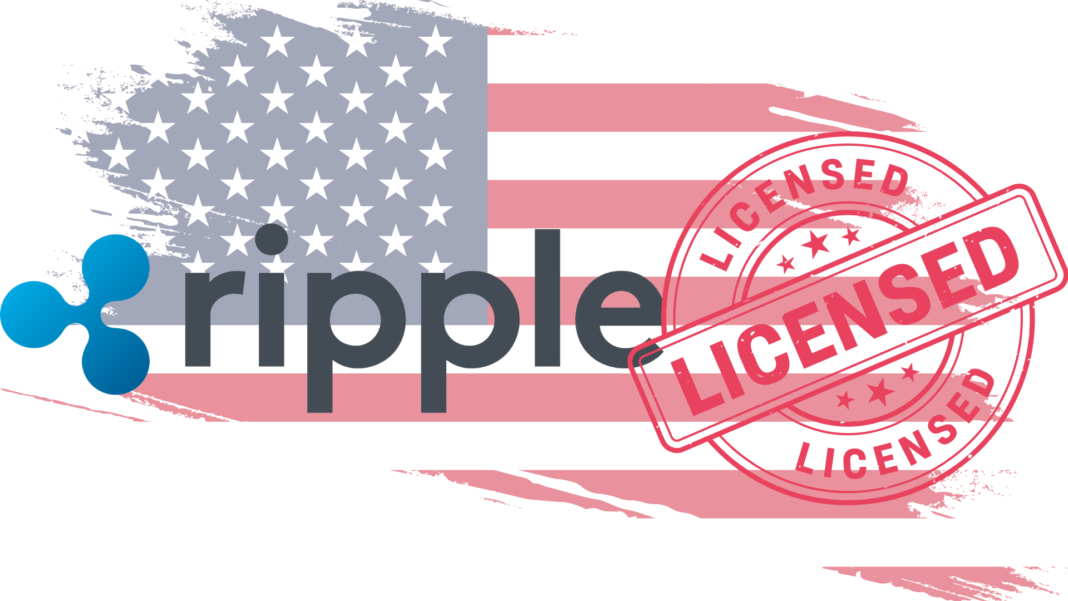Ripple recently announced that it has secured key Money Transmitter Licenses (MTLs) in New York and Texas.
This milestone brings the total number of MTLs held by Ripple to over 50, marking a significant step forward in its mission to provide a compliant, seamless global payment experience.
Strengthening Compliance in Key U.S. Markets
Ripple’s focus on securing these licenses comes in response to the growing demand for real-time cross-border payments from both banks and crypto businesses.
The MTLs granted in New York and Texas are particularly important, as both states have well-defined regulations and stringent licensing requirements.
These regulatory frameworks are known for their robust compliance standards, providing a strong foundation for Ripple to operate securely within the U.S. financial ecosystem.
With the new licenses, Ripple is now able to offer its customers a fully licensed version of its cross-border payments solution in the U.S. This ensures that Ripple can handle transactions end-to-end, providing a trusted platform for businesses looking to engage in international payments.
Ripple’s Network Growth
Ripple’s network has been growing steadily, and these new licenses contribute to its impressive global footprint of over 60 licenses worldwide.
Ripple Payments has already processed $70 billion in payment volume, offering around-the-clock availability
The money transmitter network coverage across 90+ markets, representing more than 90% of daily forex markets.
The platform’s ease of integration, streamlined onboarding, and agile systems make it a strong contender in the fast-paced payments market.
The Rise of Digital Assets and Stablecoins
Ripple’s expansion also coincides with the rising adoption of digital assets for cross-border payments. One of the standout offerings from Ripple is its enterprise-grade stablecoin, Ripple USD (RLUSD).
Designed with trust, utility, and compliance at its core, RLUSD is poised to be integrated into Ripple Payments later this year, expanding the platform’s capabilities and making it even more appealing to businesses looking to leverage blockchain technology for payments.
The increased interest in cryptocurrencies, blockchain technology, and stablecoins has made it easier for Ripple to align with the rapidly evolving financial landscape.
Joanie Xie, Managing Director of North America at Ripple, noted that more financial institutions and crypto businesses are eager to tap into the benefits of faster, cost-efficient, and round-the-clock cross-border payments.
Ripple, with its extensive experience working with both crypto companies and traditional financial institutions, is well-positioned to support companies looking to capitalize on this trend.
Also Read: Ripple $XRP Price Tumbles 10% With $33 Million in Long Positions Liquidated: What is Happening?
Legal Challenges and Industry Shifts
While Ripple continues to expand its business, it has not been without its challenges. The blockchain firm is still embroiled in a legal battle with the U.S. SEC over the classification of XRP, Ripple’s native cryptocurrency.
In August 2024, a judge found Ripple liable for $125 million in damages, though both Ripple and the SEC have filed appeals, which are currently under review by judges in the Second Circuit.
Despite these ongoing legal hurdles, Ripple remains confident in its future. The company has also benefited from broader shifts in the regulatory landscape. Recently, the SEC rescinded SAB 121, a policy that would have imposed restrictive requirements on banks offering digital asset custody services.
This move was welcomed by Ripple and many other industry players, as it signals a growing recognition among U.S. policymakers of the value digital assets can bring to the financial sector.
Ripple’s U.S. Expansion Amid Shifting Political Climate
Ripple’s success in securing licenses and its ongoing expansion can also be attributed to the shifting political landscape. In early January, Ripple CEO Brad Garlinghouse claimed that 75% of Ripple’s job openings were based in the U.S., a direct result of the favourable regulatory environment created after the Trump administration’s policies.
This reflects Ripple’s continued commitment to the U.S. market, even as it navigates the legal complexities surrounding its business.


